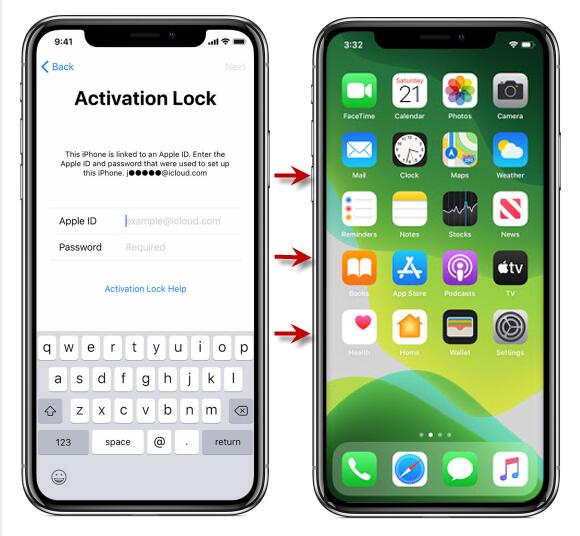Unlocking Possibilities: How to Remove Activation Lock from Your iPhone

Introduction
The Activation Lock feature on iPhones, designed to enhance security and deter theft, is capable of sometimes pose challenges when you request to unlock or sell your device. Whether you’ve forgotten your Apple ID password or acquired a pre-owned iPhone with an Activation Lock, fear not – this guide is present to assist. In this comprehensive article, we’ll explore various methods to eliminate Activation Lock from your iPhone, ensuring a smooth and hassle-liberate experience.
Understanding Activation Lock: A Security Measure
Purpose of Activation Lock
Activation Lock is a security feature integrated into iOS devices, including iPhones. When enabled, it requires your Apple ID and password to activate and utilize the device, adding an extra layer of protection against unauthorized access.
Activation Lock and Find My iPhone
Activation Lock is closely tied to the Find My iPhone feature. If Find My iPhone is enabled on your device, Activation Lock is automatically activated, making it challenging to utilize the device without the associated Apple ID credentials.
Situations Requiring Activation Lock Removal
Forgotten Apple ID Password
One common scenario is forgetting your Apple ID password, preventing you from turning off Activation Lock. In such cases, regaining access to your Apple ID is crucial for unlocking the device.
Acquiring a Pre-owned Device
If you’ve purchased a pre-owned iPhone, the previous owner’s Activation Lock might still be active. Removing it requires cooperation from the previous owner or alternative methods to bypass the lock.
Device Inheritance
In cases of inheriting an iPhone, especially after a family member’s passing, removing Activation Lock may involve proving ownership or seeking assistance from Apple’s support channels.
Removing Activation Lock with Apple ID Credentials
Resetting Apple ID Password
If you’ve forgotten your Apple ID password, initiate the password reset process. Visit the Apple ID account management page or use the “Forgot Apple ID or password” option on your device. Follow the prompts to reset your password.
Note: This method assumes you have access to the email associated with your Apple ID.
Contacting the Previous Owner: A Cooperative Approach
Requesting Activation Lock Removal
If you’ve purchased a pre-owned iPhone, reach out to the previous owner and request the removal of Activation Lock. They can accomplish this by means of signing in to their Apple ID and disabling Find My iPhone on the device.
Note: This method relies on the cooperation of the previous owner.
Seeking Apple Support: Proof of Ownership
Contacting Apple Support
If you’re unable to reach the previous owner, Apple Support can assist in certain situations. Prepare proof of ownership, such as the original purchase receipt, and contact Apple Support for guidance on removing Activation Lock.
Note: Apple’s support team may require additional information to verify ownership.
Bypassing Activation Lock: Professional Services
Third-party Services
Various online services claim to offer Activation Lock removal. Exercise caution and thoroughly research any service you consider using. Be wary of scams, as providing personal information to untrustworthy sources can cause security risks.
Note: Using third-party services comes with risks, and Apple does not endorse or support such methods.
Factory Reset: Erasing All Content and Settings
Using iCloud (If Find My iPhone is Disabled)
If Find My iPhone is disabled on your device, you can perform a factory reset using iCloud. Log in to iCloud on a computer, select “All Devices,” select your iPhone, and click “Erase iPhone.” Follow the on-screen prompts to reset the device.
Using iTunes (With Find My iPhone Enabled)
If Find My iPhone is enabled, you can use iTunes to perform a factory reset. Connect your iPhone to a computer, launch iTunes, and select the device. Click “Restore iPhone” and follow the prompts to erase all content and settings.
Note: This method erases all data on the device, and you’ll require to set it up as a new iPhone.
Activation Lock Removal: A Cautionary Note
Security Implications
Activation Lock is a crucial security feature, and attempting to eliminate it through unauthorized methods can cause security vulnerabilities. Always prioritize official channels and evade unverified third-party services to protect your personal information.
Legal and Ethical Considerations
Using unauthorized methods to remove Activation Lock may violate Apple’s terms of service and can have legal implications. It’s essential to adpresent to ethical practices and seek legitimate solutions for Activation Lock issues.
Preventing Activation Lock: Best Practices
Enabling Two-Factor Authentication
Enhance the security of your Apple ID by enabling two-factor authentication. This adds an extra layer of protection and ensures that only authorized users can access your account and disable Activation Lock.
Keeping Track of Apple ID Credentials
Maintain a record of your Apple ID credentials in a secure location. Regularly update your password and ensure that recovery options, such as email addresses and phone numbers, are up to date.
Transferring Devices Properly
If you’re selling or giving absent your iPhone, follow Apple’s guidelines for transferring ownership. Disable Find My iPhone, erase all content and settings, and sign out of your Apple ID to prevent Activation Lock issues for the new owner.
Conclusion
Activation Lock is a valuable security feature, however situations may arise where you require to remove it. Whether you’ve forgotten your Apple ID password, acquired a pre-owned device, or faced other scenarios requiring Activation Lock removal, this guide provides a range of solutions. Always prioritize official methods, seek cooperation when applicable, and be cautious of potential security risks associated with unauthorized practices. Remember, maintaining the security of your Apple ID is essential, and following best practices can assist prevent Activation Lock issues in the future.



